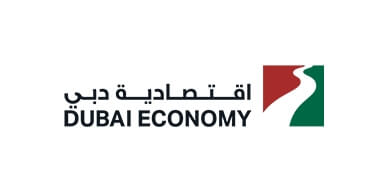Ultimate Beneficial Owner Services in Dubai
The Ultimate Beneficial Owners (the UBO Law) is part of the UAE government’s efforts to ramp up measures to deal with tax avoidance and money laundering while maintaining international best practices.
10+
Years Of
Experience

Audit Completed

Experts

Government Agencies We Are Affiliated With




Overview of UBO Declaration In The UAE
Over the past few years, the UAE government has been coming up with more and more effective measures against money laundering and terrorist financing activities. One of these decisions was Cabinet Decision No. 58 in 2020 regarding Regulation of the Procedures of the Real Beneficiary. This decision mandates that companies registered in the UAE, both free zones and the mainland, must maintain a register of the Ultimate Beneficial Owner (UBO) and submit it to the relevant authorities. This will become a crucial part of the license application procedure or incorporation of a company, both in the mainland or in the free zones.
This regulation’s main intention is to bring more transparency in the UAE economic framework via improved disclosure and record-keeping requisites for companies. The Ultimate Beneficial Owner (UBO) regulations in Dubai will ensure that companies pay adequate attention to their ownership structure to avoid non-compliance with anti-money laundering and anti-terrorism financing laws.

Ultimate Beneficial Owner (UBO) Disclosure in the UAE
The Resolution requires entities licensed in the UAE (unless exemptions apply) to prepare and file an Ultimate Beneficial Owner (“UBO”) register, Nominee Director register (if applicable) and a Partners or Shareholders register, with the relevant authority within sixty (60) days from the date the Resolution came into effect, being 27 October 2020, or by the date the entity is established. Whilst certain Free Zones have already implemented rules and processes to file UBO data, further guidance from a number of other Free Zone authorities and the Department of Economic Development (for onshore entities) is expected in relation to the filing mechanisms.
UBO Register
The UBO Register must have the details of the company’s “Real Beneficiaries,” which, according to the UBO Law, is defined as: Natural persons who own/control, either directly or indirectly, a minimum of 25% of the company’s share capital, or those who hold at least 25% of the voting rights, or those who control the company via mean, i.e., by having the right to appoint or dismiss a majority of the directors or managers.
UBO Exemptions
Companies listed on the regulated stock exchanges and the subsidiaries of such listed companies do not need to submit any separate registers with information about Ultimate Beneficial Owner to the Registrar. The disclosures made by them to the relevant stock exchanges will be counted as the relevant required submission in its place. Those companies wholly owned by a local or federal government body or are set up in the DIFC, or ADGM financial free zones are also exempted since they are subject to their own UBO disclosure requirements.
UBO Law Offences and Penalties
Companies that fail to abide by any obligation set out in the UBO Law can attract several penalties for the company as well as the company officers. In some cases, the beneficiaries and shareholders will also get penalized. Some of the violations that can attract penalties include:
Why Avyanco UBO
The new UBO regulations require businesses registered and licensed in the UAE to maintain registers and submit their details to local authorities. As one of the leading business set up consultants in Dubai, Avyanco can help you assess the structure of ownership essential to comply with UBO regulations. Our consultants can help you prepare the various registers and arrange filings with the pertinent authorities.
- Maintain the UBO and allied registers
- Avoid the fines and penalties
- Comply with regulations
Still Confused about taking your decision?
-
Expertise
We help in maintaining the UBO and allied registers and make the necessary changes or amendments to the information provided.
-
Ease
We make sure that our clients comply with regulations at all times during the business set up in UAE and afterward.
-
Clarity
We help our clients avoid the fines and penalties that are a result of violations.
Meet Our Specialists

Ravi

Mansur

Himanshu

Himanshu
Join 2000 Happy Customers
To put it quite simply, the UBO Law makes it a must for companies to maintain registers with details about ultimate beneficial owners (UBOs), shareholders, and nominee board members.
The UBO Law applies to all businesses/companies licensed and registered in the UAE. The only exceptions to the UBO law are companies that are wholly owned by a local or federal government body and those set up in the DIFC or ADGM financial free zones since they are already subject to their own UBO disclosure requirements.
Under the UBO Law, companies must maintain one register of UBOs and another register of shareholders/partners. If an entity has trustees or nominee managers, information about them must also be included in the shareholder/partners register.
The UAE Ministry of Economy makes it compulsory for companies to submit the Ultimate Beneficial Owner register to the Registrar within a given deadline. Companies that do not comply with the deadline or fail to maintain the UBO register will be subject to the Ministry’s administrative sanctions. However, the Ministry is yet to disclose the exact sanctions that will be imposed on such defaulting companies.
Under the UBO Regulations, all companies subject to these regulations must prepare and maintain a UBO Register, a Shareholder/Partner Register, and a Register of Nominee Directors/Managers.



